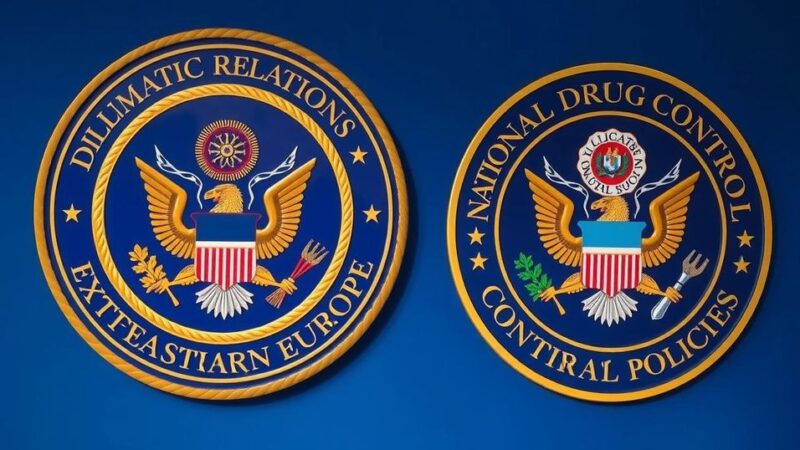This article discusses Stuart Young’s swearing-in as Prime Minister of Trinidad and Tobago, taking over from Dr. Keith Rowley. It highlights Rowley’s legacy, Young’s background and vision for the country, focusing on youth empowerment, economic diversification, and the challenges ahead, including recovery from the pandemic and political polarization.
On March 17, 2025, Stuart Young was sworn in as the Prime Minister of Trinidad and Tobago at the President’s House in St. Ann’s. This political shift marks a pivotal moment as Young ascends from his previous role in the cabinet, taking over from Dr. Keith Rowley, who served two terms. This article examines the context of Young’s leadership, its implications, and his articulated vision for the nation’s future.
Dr. Keith Rowley announced his resignation in January 2025, citing personal reasons after enduring a tenure characterized by economic challenges and political controversies. His farewell to the People’s National Movement (PNM) highlighted his commitment to the nation, even while stepping down. Rowley’s acknowledgment of the obstacles faced during his administration sets a reflective background as Young assumes his new position.
Stuart Young, prior to becoming Prime Minister, was the Minister of Energy and Energy Industries, where he played a crucial role in steering the energy sector. This experience places him in a knowledgeable position to lead Trinidad and Tobago as it navigates both the benefits and challenges of energy resources. Young’s rise has sparked debates in political circles, as he represents a younger generation, potentially signaling a shift in governance under the PNM.
Upon his inauguration, Prime Minister Young articulated a vision focused on unity and progress for Trinidad and Tobago. He emphasized collaboration across sectors to tackle the nation’s pressing issues. Key aspects include empowering youth in creative industries, recognizing their potential to engage in meaningful employment, thus addressing issues of unemployment and underemployment. His focus aims to rejuvenate cultural sectors, contributing significantly to the economy.
Young has highlighted the need for economic diversification beyond oil and gas, advocating for sectors such as tourism, agriculture, and technology. By investing in these areas, he seeks to establish a resilient economy less vulnerable to global energy price fluctuations. Furthermore, Young has called for unity among citizens, expressing that collaboration is essential for overcoming national challenges and bridging divides intensified during Rowley’s administration.
In light of growing climate change concerns, Young’s government is expected to emphasize sustainable development. His prior experience in energy policy may lead to a thorough approach towards renewable energy initiatives, vital for ensuring economic and environmental sustainability in the long term.
Despite his ambitious vision, Young will encounter significant challenges during his tenure. The persistent impacts of the COVID-19 pandemic demand effective recovery strategies to rejuvenate vital sectors like tourism and hospitality while prioritizing public health. Additionally, he must navigate the polarized political landscape, striving to unify differing societal factions while addressing public dissent and expectations.
As a former Minister of Energy, Young understands the challenges posed by fluctuating oil prices and the call for renewable energy. Striking a balance between traditional energy interests and sustainable practices will require careful consideration. Moreover, addressing social inequalities and issues such as crime and education is crucial to the success of his administration, necessitating inclusive and equitable policy-making.
Stuart Young’s inauguration as Prime Minister signifies an important juncture in Trinidad and Tobago’s political evolution. His commitment to unity, youth empowerment, and economic diversification resonates with a populace eager for reform. However, the challenges he faces will test the resolve and effectiveness of his leadership. As Young embarks on his political journey, his actions will ultimately define his tenure and shape the nation’s path forward.
Stuart Young’s recent ascendancy to Prime Minister of Trinidad and Tobago opens a new chapter marked by a commitment to unity, youth empowerment, and economic diversification. While facing significant challenges, including post-pandemic recovery and political polarization, his leadership will be evaluated against his vision for a more inclusive and resilient Trinidad and Tobago. The forthcoming months are pivotal as he seeks to implement his strategies while engaging in dialogue with the citizens.
Original Source: www.stvincenttimes.com






